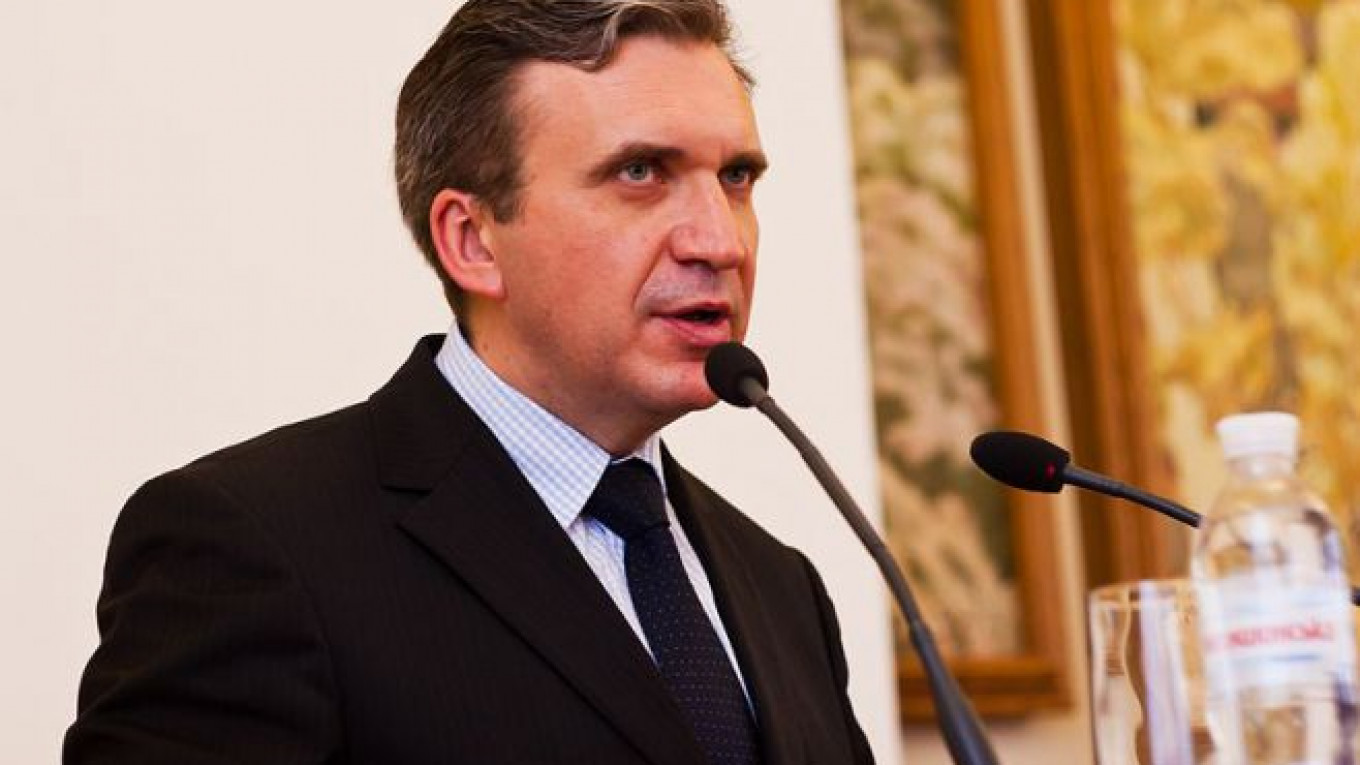Ukrainian Economy Minister Pavlo Sheremeta said Thursday he had tendered his resignation and voiced frustration at not being able to push ahead with much-needed economic reform.
After months of fighting in its eastern regions following the toppling of a government blighted by corruption and economic mismanagement, Ukraine's economy has contracted sharply, even with a multi-billion dollar financial lifeline from the International Monetary Fund.
Sheremeta had vowed to slash red tape and eliminate corrupt practices that have helped to virtually bankrupt Ukraine when he was appointed soon after the ousting of Moscow-backed president Viktor Yanukovych in February.
But he has not managed to push substantive legislation through parliament.
In a sign of frustration at the lack of broad support for reform, Sheremeta said on his Facebook page that he no longer wanted to "fight against yesterday's system."
Sheremeta's offer to resign follows comments from Prime Minister Arseny Yatsenyuk on Wednesday that voiced dissatisfaction with the speed and depths of reforms.
Parliament, which is still packed with many former supporters of Yanukovych, has managed to pass legislation on taxation and sanctions on Russia in recent weeks — but only after being bullied by Yatsenyuk who at one point also threatened to resign over the legislature's inaction.
The post of economy minister was the first political appointment for Sheremeta, a former economics academic.
"There are serious and solid reasons for this resignation ... It's a good example of how very talented, popular economic commentators, are not necessarily effective reformers," Kiev-based political analyst Volodymyr Fesenko said.
Sheremeta's resignation will have to be approved by parliament. This might be one of the last acts of the current parliament which is likely to be dissolved next week, paving the way for a new election in October.
See also:
A Message from The Moscow Times:
Dear readers,
We are facing unprecedented challenges. Russia's Prosecutor General's Office has designated The Moscow Times as an "undesirable" organization, criminalizing our work and putting our staff at risk of prosecution. This follows our earlier unjust labeling as a "foreign agent."
These actions are direct attempts to silence independent journalism in Russia. The authorities claim our work "discredits the decisions of the Russian leadership." We see things differently: we strive to provide accurate, unbiased reporting on Russia.
We, the journalists of The Moscow Times, refuse to be silenced. But to continue our work, we need your help.
Your support, no matter how small, makes a world of difference. If you can, please support us monthly starting from just $2. It's quick to set up, and every contribution makes a significant impact.
By supporting The Moscow Times, you're defending open, independent journalism in the face of repression. Thank you for standing with us.
Remind me later.






